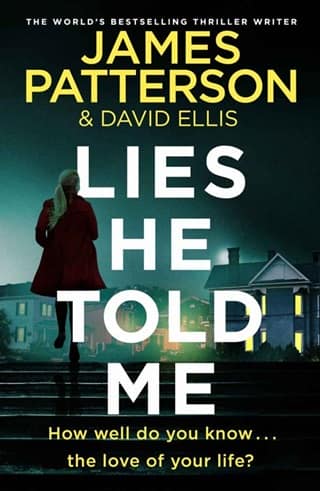THIRTY-THREE
THIRTY-THREE
I STILL REMEMBER THAT morning fifteen years ago, Halloween morning. I was in my law office, sipping a Star-bucks coffee and getting ready to draft an appellate brief, when my secretary buzzed me on the intercom with two breathless messages: Howard Shimkus was on the phone, needing to speak with me "urgently," and two FBI agents were in the outer office, demanding to see me.
Taking a call from one of our senior partners took priority. "You're not gonna believe this, Marcie," Howard said. "Silas Renfrow is dead."
"Silas is … he's —"
"All three witnesses in that secret detention center. They got to all three witnesses. They're all dead. They stormed the place, killed all the marshals, then the three witnesses, then torched the place. Burned everything and everyone to a crisp."
I remembered Silas's words to me only weeks earlier — there was no chance he'd survive long enough to testify against Michael Cagnina.
"The FBI just paid me a visit, some guys from the Springfield office," said Howard.
"What a coincidence. I have two FBI agents waiting outside my office right now."
Those agents, to say the least, were agitated. Even more so when they questioned me about everything I knew, to which I politely but firmly replied that anything Silas and I discussed was protected by attorney-client privilege.
"Lady, half a dozen US marshals were killed along with the three witnesses," said the lead FBI agent, a guy named Francis Blair, as if that fact allowed me to make an exception to the most sacred rule a lawyer follows.
And besides, what could I tell them? That Silas predicted that Cagnina would somehow discover the location of the secret detention center and rub out the people testifying against him? I didn't see how that would help anyway.
Eventually the agents left, and I read online about what was being called the Halloween Massacre. It had taken place up north in a suburb of Rockford, a town called Roscoe, where the detention center was located. The three witnesses shot, decapitated — decapitated! — and set on fire. A half dozen US marshals killed in a gunfight. The whole detention center torched.
It wasn't until a week later, when Howard finally completed his long fraud trial in downstate Illinois, that he and I had a chance to talk about the whole thing at length. We were at the bar at the Union League Club, Howard drinking Scotch, me a glass of wine. By then, the shock had worn off. The Halloween Massacre had taken on celebrity status, and no lawyer enjoyed notoriety more than Howard.
He'd even started to have a sense of humor about it. "To Silas," he said, raising his glass — not his first — of Scotch. "We hardly knew ye. Literally. We never saw your face; we never heard your real voice; and we had no fucking idea where we were when we visited you. Now." He patted my arm. "Give me stories. A blow-by-blow of everything you discussed."
So I did. How Silas preferred talking about anything other than the charges against him. How he tried to get to know me personally and talk about myself. How he even started getting a little too personal, including what I took to be a reference to suicide. "He said something about ‘pulling a heron' or something and saying goodbye."
Howard's round head whipped in my direction. "He said what? Say that again."
"He said if he could ‘pull a heron' and say good —"
"Oh, shit. Sweet holy motherfuck." Howard fell back against his chair, losing the color in his face. Then he reached for my arm. "Who have you — wait, you didn't — tell me you didn't say this to the FBI."
"No, of course not," I said. "It was a privileged conversation. But what does it mean? I thought a heron was some bird that looks like a goose. This is some old-fashioned figure of speech or something?"
But Howard wasn't listening to my question. He was looking up at the ceiling. "Oh, Jesus Christ," he whispered as his eyes closed.
He sat there for a while like that, eyes shut, head back, as if in meditation. He always had a flair for drama; it's probably what made him a good trial lawyer.
"It sounded like he was talking about killing himself," I said.
Howard let out a small sound but otherwise didn't react.
"I'm in the dark here, Howard," I said. "Help me out."
"No. Stay in the dark. The dark is good. The dark is your friend."
"But you can't leave me hanging —"
"Marcie, I want you to listen to me. You can't ever, ever repeat that to anyone else. Anyone, ever." He opened his eyes, rejoining planet earth, and leveled his stare on me. "And as far as I'm concerned, you never told me, either."
Howard wouldn't explain any further or give me any idea what that cryptic phrase meant. But me being me, I couldn't let it go. I thought about it, then started searching the internet. It took some time. A lot of trial and error. But eventually, I discovered the meaning of "pulling a heron."
I wish I hadn't. I wish I'd let it go. Because what I discovered changed my life forever.
 Fullepub
Fullepub 



